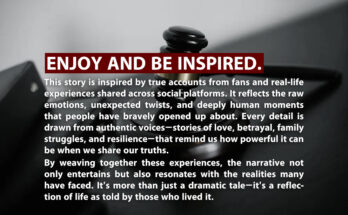I always imagined being a mother. But after years of trying and countless medical consultations, I had to accept that infertility was my reality. It was a painful journey—one that reshaped my identity and dreams. My brother, however, seemed to interpret my childlessness as availability. He and his wife began dropping off their kids unannounced, assuming I had nothing better to do. At first, I welcomed the chaos, thinking it might fill the void. But soon, I realized they weren’t seeking connection—they were exploiting my grief.
It started subtly. A quick errand here, a dinner reservation there. “You love kids,” they’d say, handing me their toddlers like parcels. I didn’t mind helping occasionally, but it became routine. They’d text me after they’d already left the kids at my door. No discussion, no consent. I felt invisible—like my time, my boundaries, didn’t matter. My infertility had become their convenience. I wasn’t a beloved aunt anymore. I was their unpaid nanny.
One weekend, they left the kids with me for three days without warning. I had plans—self-care, a rare date night—but those vanished. I was livid. When I confronted my brother, he brushed it off. “You don’t have kids, what else do you do?” That sentence shattered me. My pain, my loss, had been reduced to a scheduling perk. I wasn’t a person grieving—I was a resource. I realized then that love without respect is manipulation.
I tried setting boundaries. I explained that while I cherished my nieces and nephews, I needed space and respect. My brother scoffed. “You’re being dramatic.” His wife chimed in, accusing me of being selfish. The irony stung. I had sacrificed time, energy, and emotional bandwidth for their family. Yet the moment I asked for consideration, I became the villain. It was clear—they didn’t see me as family. They saw me as function.
I stopped answering their texts. I stopped opening the door. It felt cruel, but necessary. My mental health had deteriorated. I was anxious, resentful, and deeply hurt. I needed to reclaim my life. I began therapy, joined support groups, and reconnected with friends who saw me—not my womb—as worthy. Slowly, I rebuilt my sense of self. I wasn’t just the woman who couldn’t have children. I was someone who deserved love, respect, and autonomy.
Months passed. My brother reached out, apologizing vaguely. “We didn’t realize,” he said. But I wasn’t ready to forgive. Not yet. Forgiveness requires accountability, not convenience. I told him I needed time. He didn’t push. That silence was the first respect he’d shown me in years. I missed the kids, but I couldn’t sacrifice myself for their parents’ entitlement. Healing meant choosing myself—even when it hurt.
Now, I volunteer at a children’s center. I mentor, I teach, I nurture. It’s fulfilling, but on my terms. I’ve learned that motherhood isn’t the only path to love. I can be whole without bearing children. I can be generous without being exploited. My infertility doesn’t define me—but it taught me to value myself fiercely. I’m no longer the on-call babysitter. I’m the author of my own story.
If you’re reading this and feel unseen, know this: your boundaries matter. Your pain is valid. You are not selfish for demanding respect. Family should uplift, not drain. I’ve walked through grief and emerged stronger. And now, I live not in service of others’ assumptions—but in honor of my own truth.


